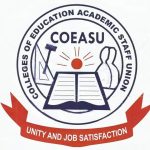Vice President Kashim Shettima has urged the integration of indigenous knowledge into Africa’s education systems.
This is as he said would serve as a strategy to tackle the continent’s pressing challenges.
Shettima disclosed this in Abuja made the a the opening plenary of the Africa Student Leaders General Assembly and Ordinary Congress.
The theme of the event is tagged: “Pro-Africa Education System: A Key to Unlocking Africa’s Potentials.”
The vice President, represented by his Senior Special Assistant, Mahmud Muhammed, urged African students to embrace the realities of the continent while striving for global excellence.
“Our education system must be rooted in African realities while reaching out for global excellence. It must address our challenges while celebrating our strengths.
“We must ensure that our education becomes holistic, addressing not just academic knowledge, but also practical skills and critical thinking as well as solutions to real-world problems.
“We need an education that builds bridges between learning and doing, between tradition and innovation, and between wisdom and global knowledge,” he said.
Shettima canvassed for a pro-Africa education system that must integrate indigenous knowledge to address modern challenges.
According to him, to do this, embracing technology and innovation is essential, which will prepare our youth to be creators rather than just mere consumers.
” Additionally, community engagement is crucial to link education to local development and address real-world challenges. Distinguished delegates from the African continent, the time for action is now.”
Prof. David Namwandi, a former Namibian Minister of Education and founder, International University of Management, while delivering the Keynote address, commended the President of All African Students Union (AASU), Osisiogu Osikenyi for hosting the continental event.
Namwandi emphasised the need for a robust and practical approach to education to unlock Africa’s vast potential.
“For education to unlock Africa’s full potentials, we must address some critical issues.
“First, the curriculum, we must adopt a pro-African curriculum that prioritises African history, culture, and innovation while embracing global advancements. This approach will cultivate pride in our heritage and inspire solutions to our continent’s challenges.
“Second, technology integration, as the world becomes increasingly digitalised, Africa must leverage technology to expand access to education through e-learning platforms and digital resources.
“Third, richer research and innovation, African universities must prioritise research that drives industrialisation and economic growth. By investing in research and development, we can create homegrown solutions to African civic problems,” he said.
On his part, Senior Special Assistant to the President on Student Engagement, Sunday Asefon, described the event as a “clarion call to ignite a transformative renaissance in Africa’s education system.”
“This gathering of young intellectuals and visionary leaders across Africa is a testament to the strength of our collective resolve to chart a brighter future for education and youth development across the continent,” he said.
Asefon expressed the commitment of President Bola Tinubu, to massively developing the nation’s education reform by widening access under the Renewed Hope Agenda.
Also speaking, Lucky Emonefe, President, National Association of Nigerian Students (NANS), urged participants to use the assembly as a platform for fostering unity and driving progress across Africa.
Delegates from several African nations attended the event, which was organised by AASU in collaboration with Reachout World Day, NNPC, and other partners.











